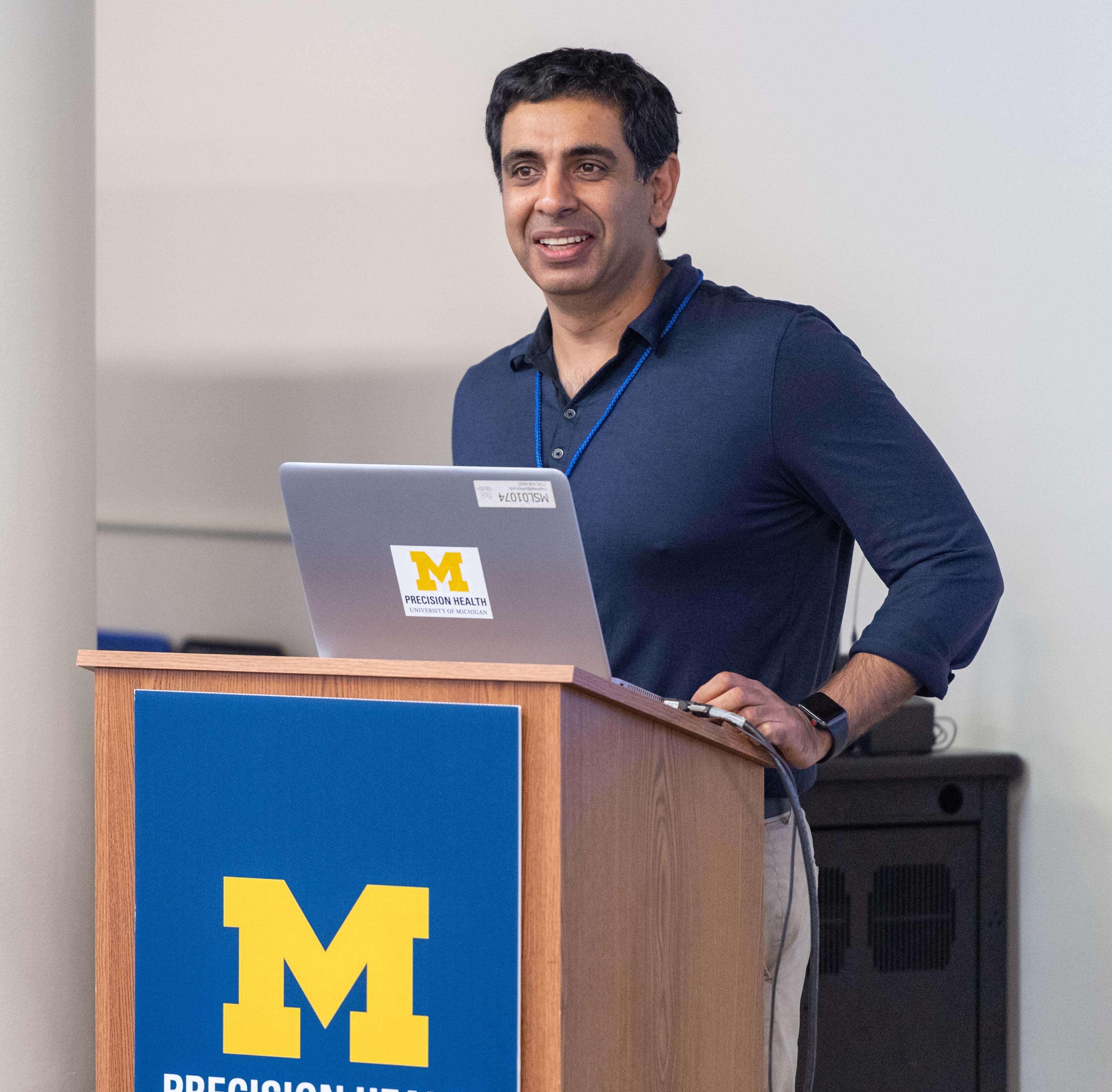Investigators Awards Launch Event
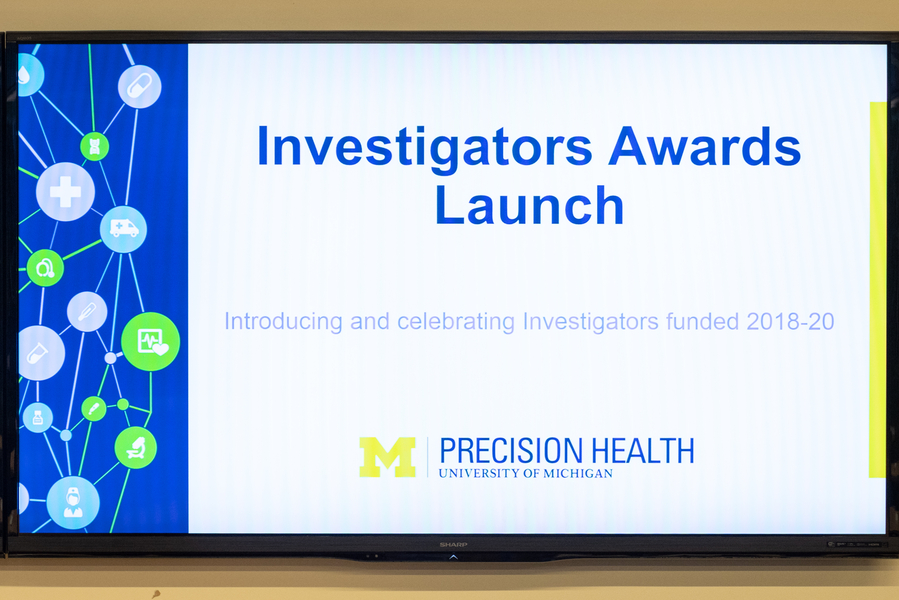
In its first year, Precision Health awarded close to $4 million to fund 22 research projects in two categories: Scholars Awards, to generate interest among graduate students, fellows, residents, and trainees; and Investigator Awards, to encourage new collaborative research projects rooted in precision health, to advance science and develop health innovations

U-M Precision Health Co-Director Sachin Kheterpal welcomes recipients of 2018 Investigators Awards to share their research.
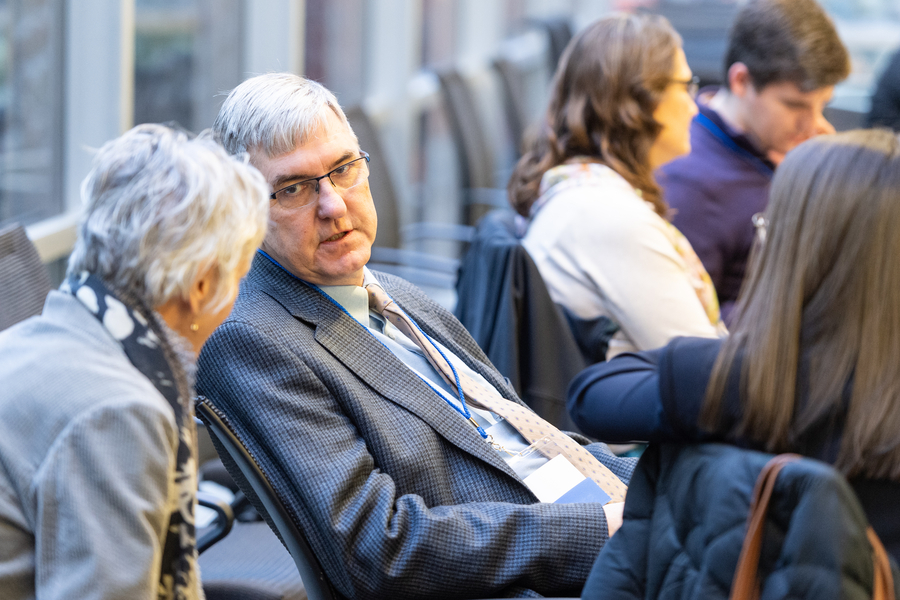
Frank Lobeck, Precision Health Cohort Development Director, talks with Joan Keiser, Precision Health Strategic Planning Consultant

John Ayanian, director of U-M’s Institute for Healthcare Policy and Innovation and chair of Precision Health's Faculty Advisory Committee.

Stephanie Bielas, an Assistant Professor of Human Genetics, Neuroscience, and Cell and Molecular Biology, discusses genetic modulators of opioid exposure. "Our interest was born out of the opioid crisis," Bielas said.
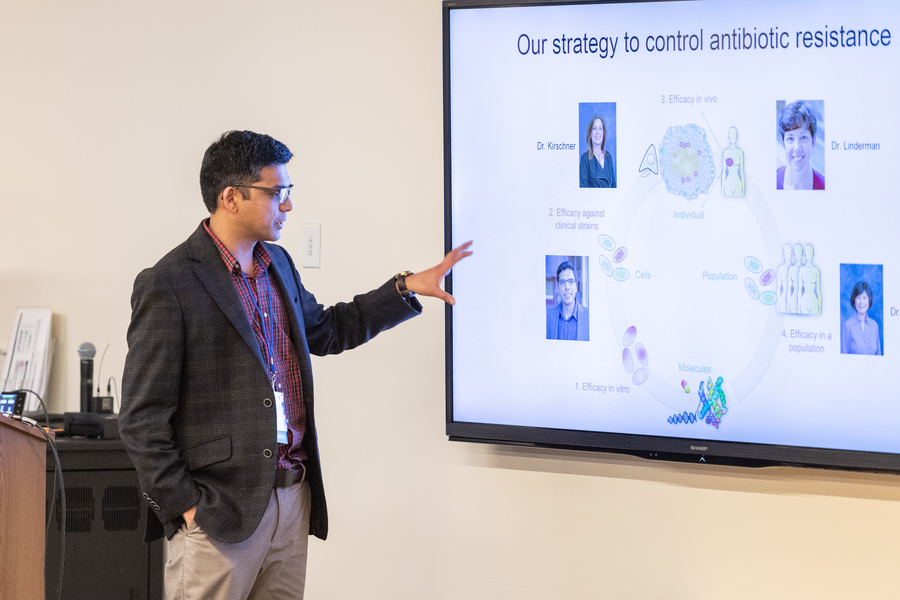
An Assistant Professor in Biomedical Engineering, Sriram Chandrasekaran applies modeling to his study of therapies for drug-resistant infections
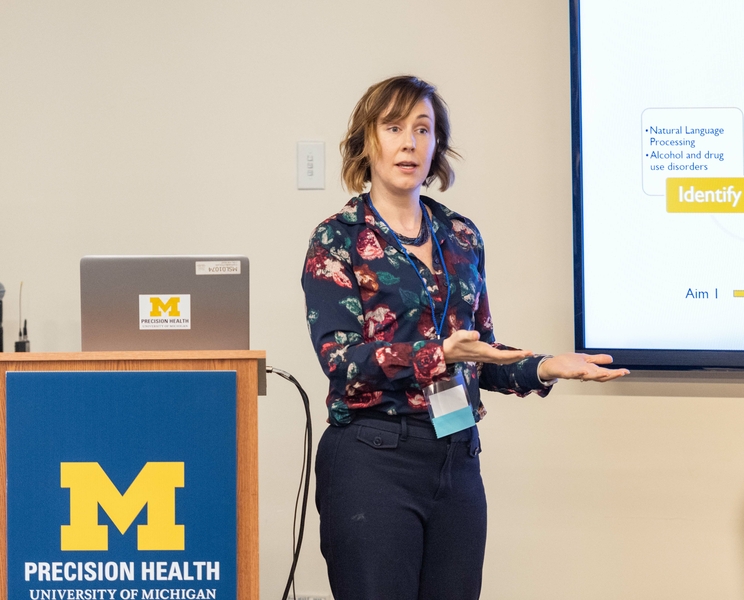
Anne Fernandez is an Assistant Professor of Psychiatry who researches precision prevention of post-surgical opioid use. She is utilizing the MGI dataset to produce a risk prevention algorithim.
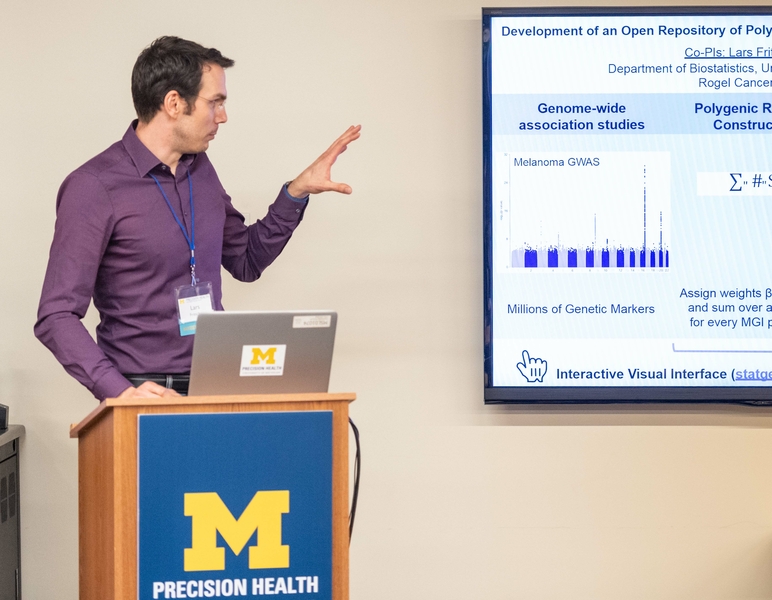
Biostatistics researcher Lars Fritsche works toward a "democratization of the data" by developing an open repository of polygenic risk scores (PRS) as a resource for the research community.
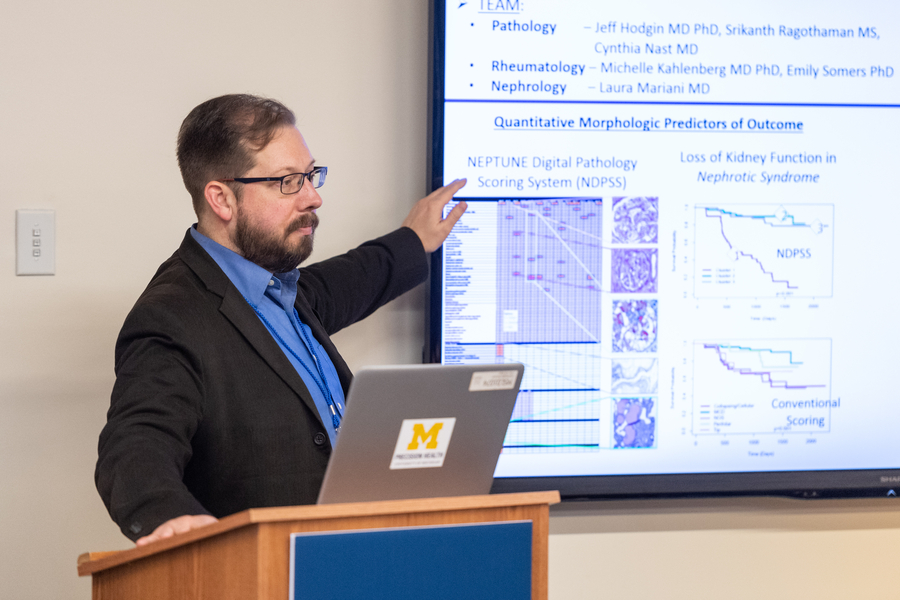
Jeffrey Hodgin, an Assistant Professor of Pathology, says of his research into digital pathology and image analysis for lupus nephritis, "Five years ago this wouldn't have been possible."
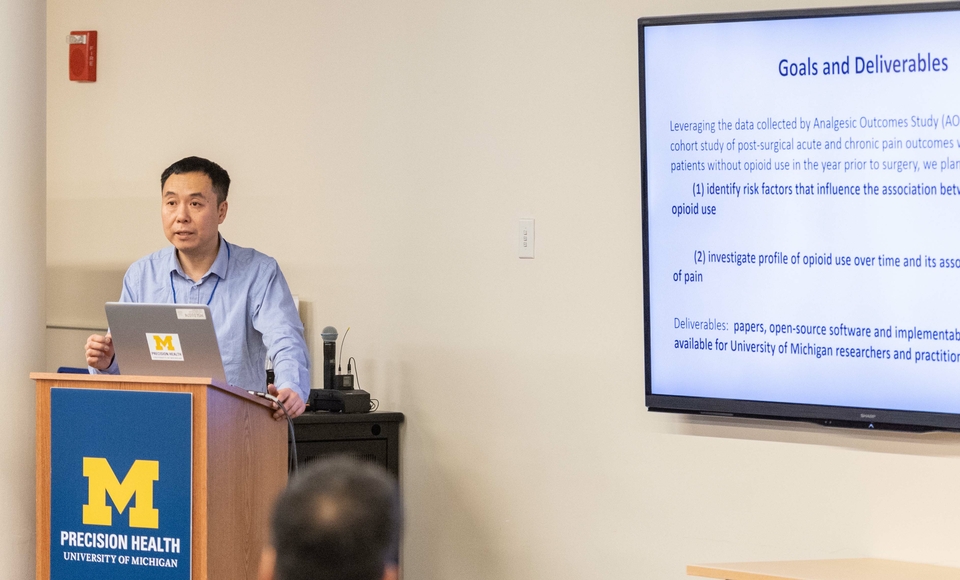
Biostatistics professor Yi Li is developing open-source software to identify risk factors that influence the association between pain severity and opioid use.

Scott Peltier, a Research Scientist in Biomedical Engineering who uses neuroimaging to enhance clinical prediction in Alzheimer's, aims to develop a multi-parameter, multi-variate model of what's happening in the brain.
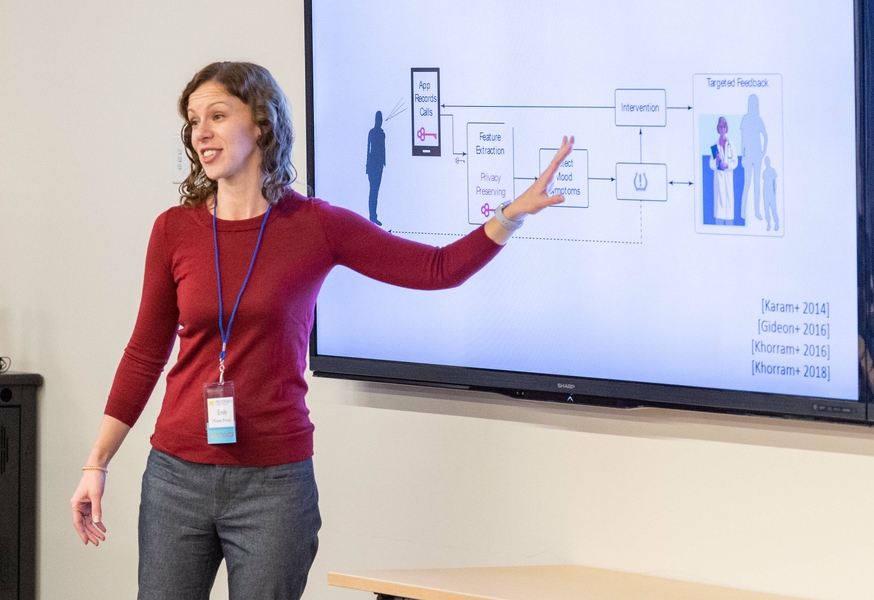
An Associate Professor of Electrical Engineering and Computer Science, Emily Provost studies the relationship between mood and surroundings, to reduce depressive episode severity and decrease hospital stays. Her long-term goal--develop technologies that can predict illness.

Alex Shorter, Assistant Professor of Mechanical Engineering, applies data from wearable sensors to identify at-risk pre-surgery fragility in patients, in order to prevent post-surgical complications.
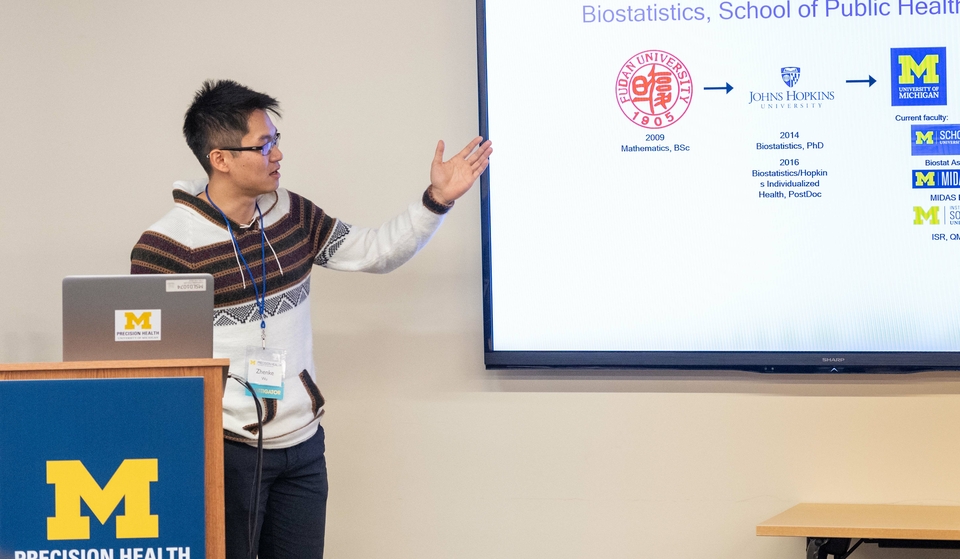
Zhenke Wu, an Assistant Professor of Biostatistics, applies Bayesian
analysis to several categories of data--including mobile data, geolocation, and time scales--with the aim of improving outcomes in mental health, reducing depression, and predicting mood change.
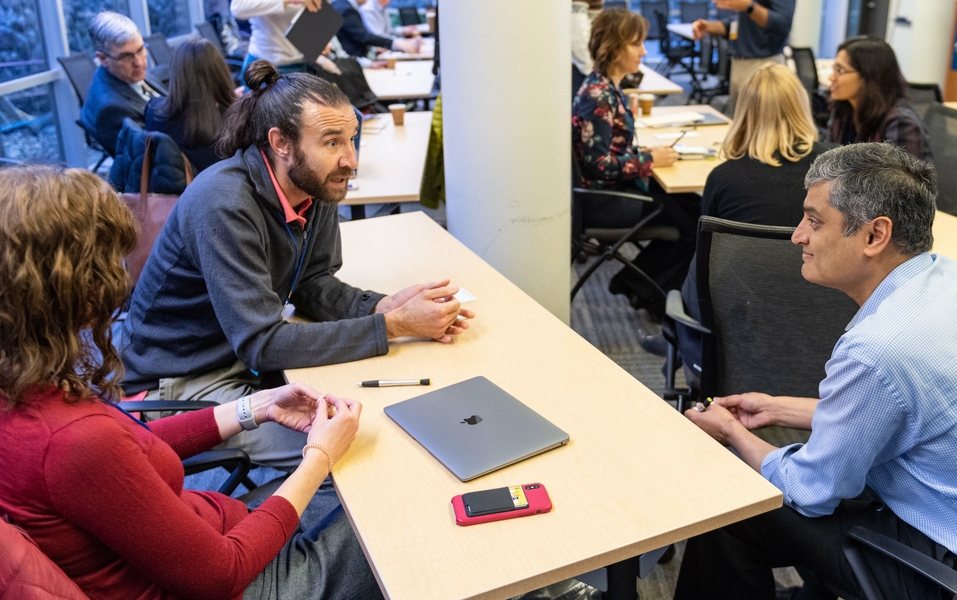
Brahmajee Nallamothu (far right) is a Professor in the Division of Cardiovascular Diseases and the Department of Internal Medicine, as well as a co-leader of Precision Health's Data Analytics & IT Workgroup.

Bhramar Mukherjee (seated at the right) co-leads Precision Health's Cohort Development Workgroup, and is a Professor in the Department of Biostatistics and in the Department of Epidemiology.
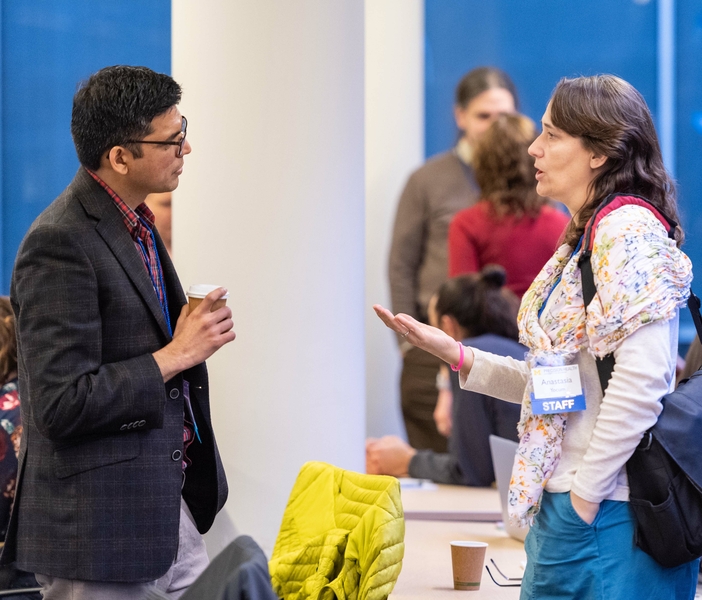
Precision Health Scientific Research Facilitator Anastasia Yocum talks with Investigator Award recipient Chandrasekaran.
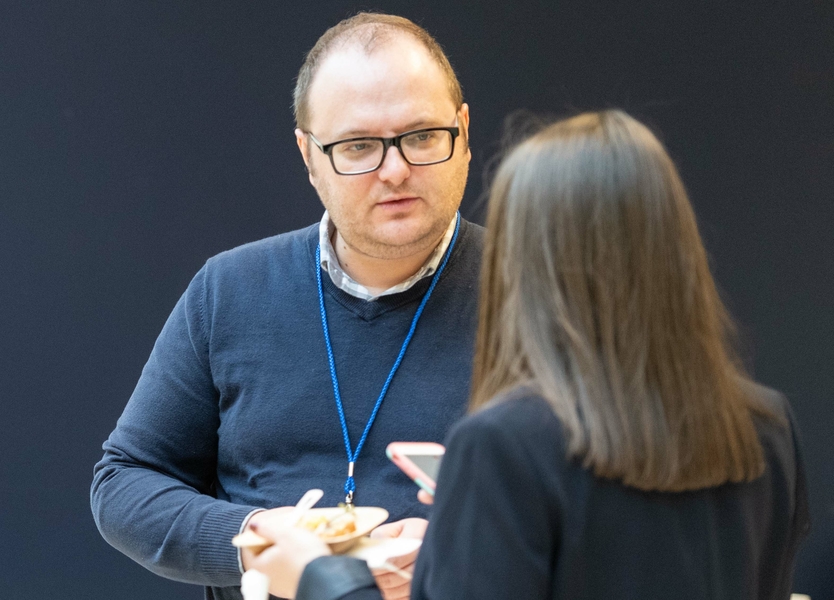
Andi Cani (left), a graduate student in Pathology, received a Scholars Award for his research into next-gen sequencing for early detection of prostate cancer.
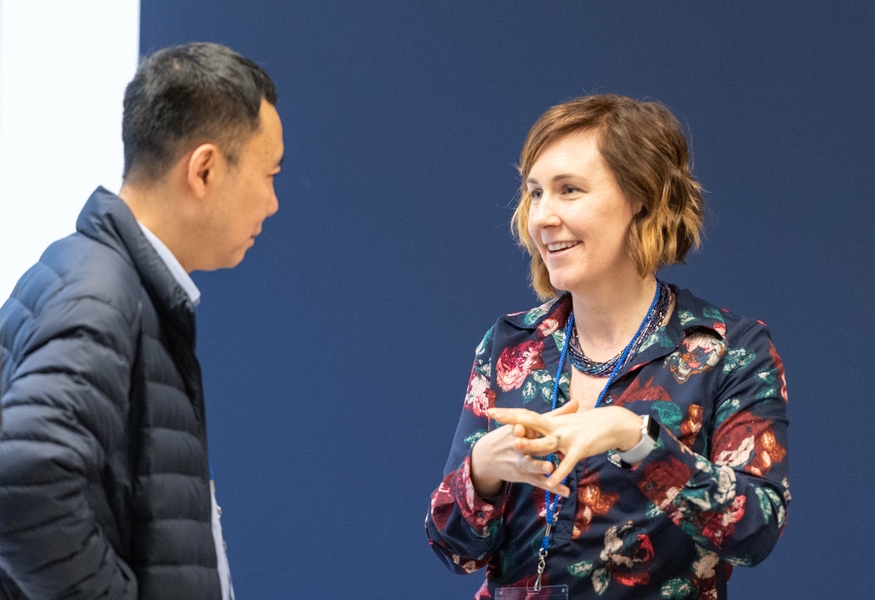
Investigators Awardees Yi Li and Anne Fernandez.
February 22, 2019
On February 7, 2019, Precision Health brought together researchers from the 10 projects that were granted Investigators Awards in 2018. Investigators from each project gave a short presentation of their work and connected with fellow grantees.

